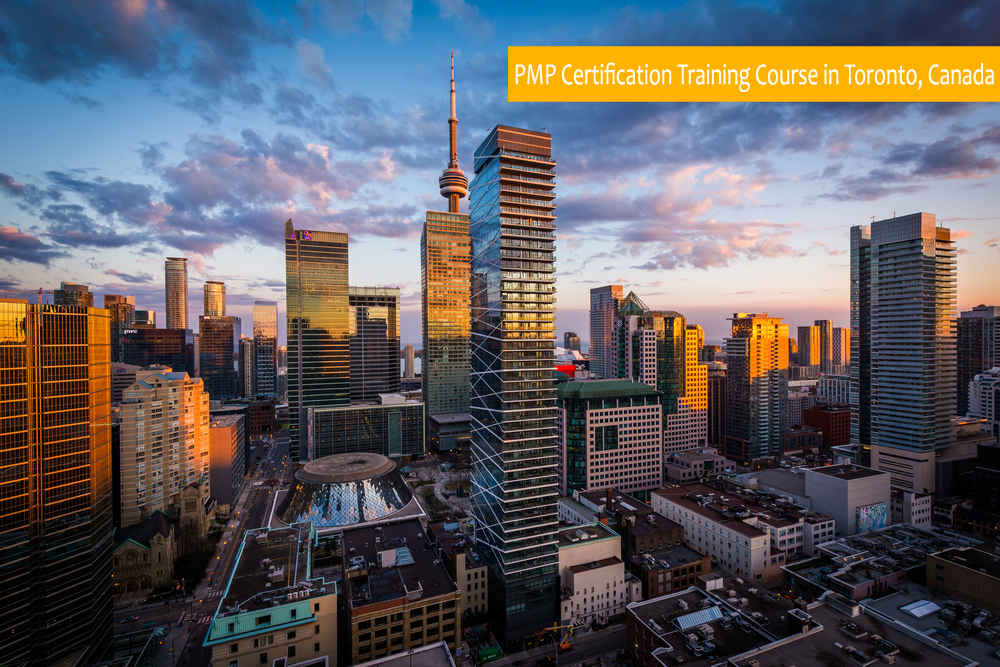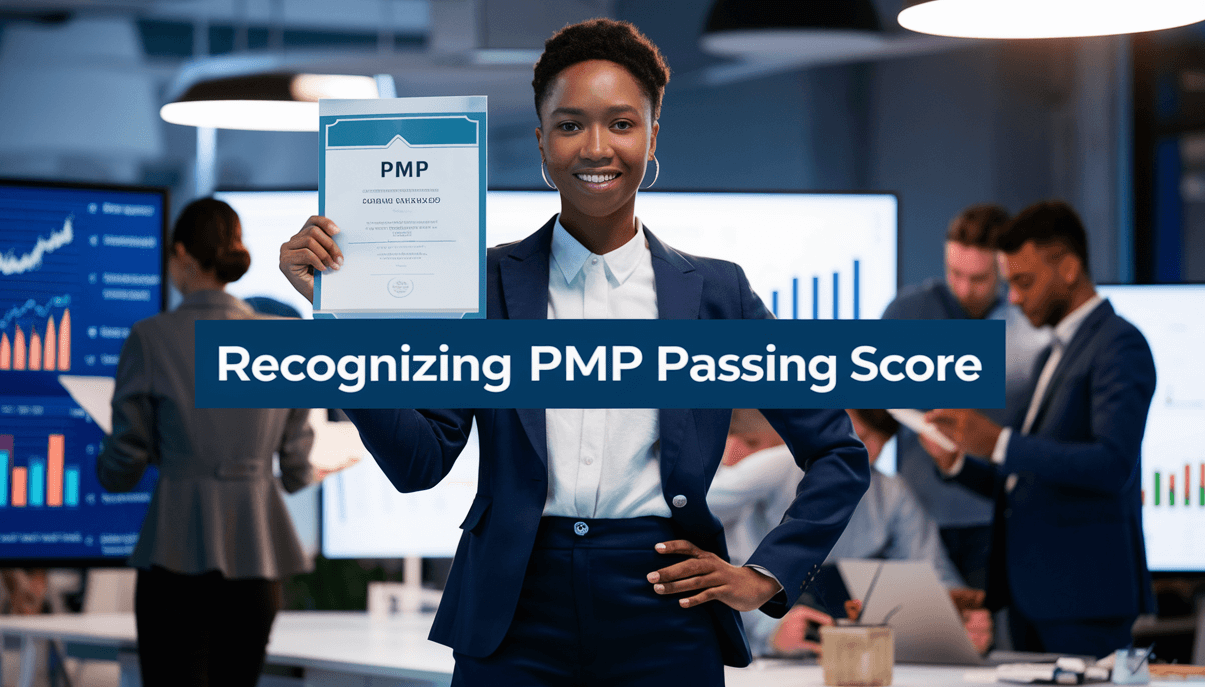
The Project Management methodology has been successfully used in various industries to plan, execute, and monitor projects. These projects can be anything from the construction of a house to the development of a mobile application. Every project is unique and requires specific resources, human as well as financial resources to get finished. This is the responsibility of a project manager who leads the project and manages every aspect of the project from its initial concept to its final delivery. These project managers are usually professionals having earned the PMP (Project Management Professional) Certification from the Project Management Institute (PMI).
Jump ahead to
PMP Certification in Canada
PMI is the industry-recognized project management governing body that awards the PMP Certification around the globe. It collaborates with organizations around the world spanning multiple industrial sectors to define the standards for a project management professional. Earning this prestigious and widely recognized credential from PMI is considered to be the gold standard for project managers, globally. Aspiring project managers can aim for the PMP Certification in Canada to become recognized in the project management industry.
The PMP Certification justifies the fact that the project manager has all the knowledge and skills required to perform their duties. Apart from leading a project from its ideation to delivery, project managers plan the project scope and schedule. They receive a budget and a deadline within which they are expected to complete the project. Project Managers are excellent communicators and manage the expectations of the stakeholders of the organizations. Thus, they need to be knowledgeable and proficient in every element of the project including managing the human resources.
Also, PMPs frequently rank among the highest-paid professionals across the world. The average annual salary of a PMP in Canada is $82,806 and can go up to $133,106, according to Glassdoor. These figures are subjected to increase or decrease based on the nature or location of the industry. At present, there are thousands of PMPs in Canada and the numbers are only going up as PMI predicts that there will be more than 2 million new project management-related jobs that organizations across the world need to fill up soon.
How to get PMP Certification in Canada?
Suppose you aspire to become a PMP certified project manager in Canada and start working in organizations by applying your project management knowledge in practice. In that case, you need to start by fulfilling the PMP requirements. PMI has always maintained a very high standard for earning the PMP Certification. Therefore, the eligibility criteria reflect these standards. PMP aspirants need to meet the eligibility requirements of the PMP Certification before they can apply for it. This includes educational background and project management experience level. So, those who have some experience working in the project management industry are eligible for the PMP Certification.
PMP Certification Canada Requirements
To earn the PMP Certification in Canada, PMI requires candidates to fulfil the following eligibility requirements before applying:
- A Four-year degree
- 36 months leading projects
- 36 hours of project management education/training or a CAPM Certification*
OR
- A high school diploma or an associate degree or any other global equivalent
- 60 months leading projects
- 35 hours of project management education/training or a CAPM Certification*
The prerequisites are presented in a table below.
| Educational Background | Project Management Experience | Project Management Education |
| Secondary degree (High School Diploma, Associate’s Degree or Global equivalent). | Minimum five years/60 months unique non overlapping professional project management experience, during which at least 7,500 hours were spent leading and directing the project*. | 35 contact hours of formal education. |
| OR | ||
| Four-Year Degree (Bachelor’s Degree or Globally Equivalent). | Minimum three years/36 months unique non-overlapping professional project management experience, during which at least 4,500 hours were spent leading and directing the project*. | 35 contact hours of formal education. |
*CAPM Certification is yet another credential offered by PMI, and it stands for the Certified Associate in Project Management. The CAPM certification in Canada is best suited for individuals who want to start their careers in the project management industry. This credential validates their knowledge and skills about the basics of project management methodology. It is the best foundation-level certification for aspiring project managers. Thus, a CAPM Certification holder can apply for the PMP Certification as they have completed at least 23 hours of project management training which is a part of the eligibility requirements for the CAPM credential.
PMP Certification Exam in Canada
Those who do not have the CAPM Certification can still apply for the PMP Certification in Canada by fulfilling the eligibility requirements as mentioned in the table. Aspiring project managers can register for the PMP Certification Training Course in Canada to meet the project management education and training criteria to earn the PMP Certification. The training will cover the methodology of project management and the latest PMP Exam Content Outline provided by PMI. According to the latest change in the PMP Exam (January 2021), PMP aspirants will have their knowledge and skills measured in three domains – People, Process, and Business Environment. Each of these domains has tasks assigned to them that candidates need to master.
These tasks are mentioned below along with the percentage of questions that will appear in the PMP Exam.
Domain 1 – People (42%)
- Manage Conflict
- Lead a Team
- Support Team Performance
- Empower Team Members and Stakeholders
- Ensure Team Members/Stakeholders are Adequately Trained
- Build a Team
- Address and Remove Impediments, Obstacles, and Blockers for the Team
- Negotiate Project Agreements
- Collaborate with Stakeholders
- Build Shared Understanding
- Engage and Support Virtual Teams
- Define Team Ground Rules
- Mentor Relevant Stakeholders
- Promote Team Performance through the Application of Emotional Intelligence
Domain 2 – Process (50%)
- Execute Project with the Urgency Required to Deliver Business Value
- Manage Communications
- Assess and Manage Risks
- Engage Stakeholders
- Plan and Manage Budget and Resources
- Plan and Manage Schedule
- Plan and Manage Quality of Products/Deliverables
- Plan and Manage Scope
- Integrate Project Planning Activities
- Manage Project Changes
- Plan and Manage Procurement
- Manage Project Artifacts
- Determine Appropriate Project Methodology/Methods and Practices
- Establish Project Governance Structure
- Manage Project Issues
- Ensure Knowledge Transfer for Project Continuity
- Plan and Manage Project/Phase Closure or Transitions
Domain 3 – Business Environment (8%)
- Plan and Manage Project Compliance
- Evaluate and Deliver Project Benefits and Value
- Evaluate and Address External Business Environment Changes for Impact on Scope
- Support Organizational Change
There will be a total of 180 questions in the PMP examination among which 175 are scored and 5 are unscored questions. Candidates will have 230 minutes to attempt all the questions with two 10-minute breaks during the examination. Also, project managers with the PMP Certification in Canada must prove their knowledge and proficiency in leading and managing projects with the three known approaches – Predictive or Waterfall, Agile, and Hybrid. Thus, each of the three domains will have questions covering all three project management methodologies.
Since modern project management is no longer following the traditional project management methodology alone, it makes sense that the PMP Certification Exam Content reflects these changes and focuses on agile and hybrid project management as well. So, project managers earning the PMP credential can validate their knowledge and skills in every known approach to achieve project management success. This will also help them distinguish themselves from the rest of their non-certified peers in the project management field. Thus, by earning this valuable credential, project managers can start working with their desired organizations and earn better salaries than the rest.
Conclusion
Acquiring the PMP Certification in Canada helps you uncover many benefits including promotability and improved credibility. With advanced knowledge of the modern project management methodology, you can produce better results for your organization and help them gain a competitive advantage. Modern organizations are striving for digital transformation and are dependent on smart project managers who can successfully lead these projects and produce long-term success. Therefore, earning a PMP Certification is the best way to future-proof your career.



